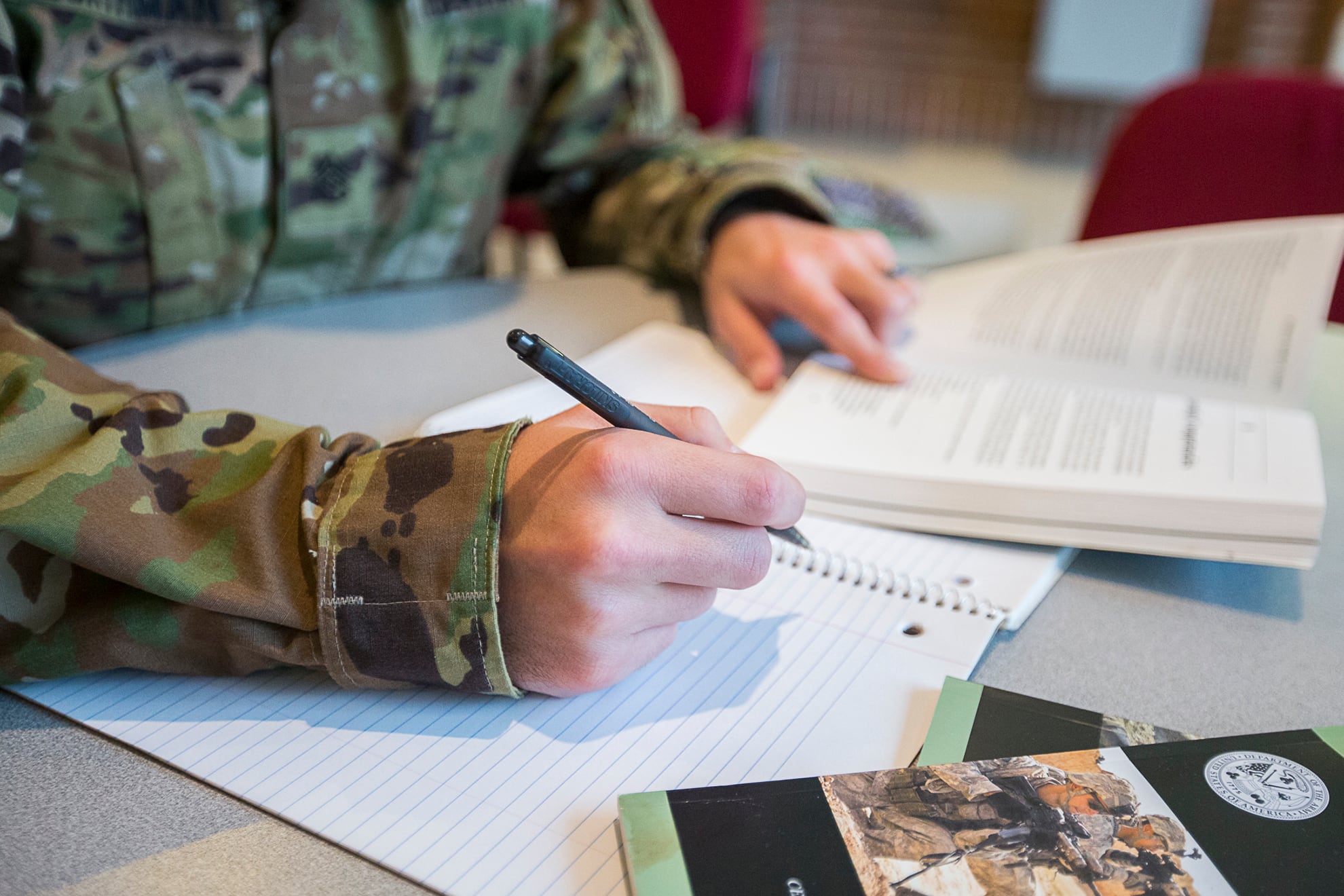After nearly a year of troubles for Army IgnitED, the service’s new platform for troops to access their education benefits, Congress has demanded an update on how many soldiers and colleges are still affected by the site’s failed rollout.
A section of the fiscal 2022 defense policy bill, which President Joe Biden signed into law in December, says the service has less than two months to submit a report to Congress detailing “the estimated date when the Army IgnitED program will be fully functional.”
The Army also has to provide a timeline for when soldiers who incurred out-of-pocket costs and universities can expect the service to pay its bills.
“The Army places a priority on voluntary education and on the personal and professional development of our Soldiers,” said Army spokesperson Lt. Col. Gabe Ramirez in an email to Army Times. “We will provide an update to Congress in accordance with the FY22 NDAA requirement.”
While most soldiers are now able to request new courses using the platform, the report will offer the most accurate glimpse yet into how many servicemembers are still suffering after the Deloitte-designed website’s failed launch in March 2021.
More than 100,000 of the service’s active duty and reserve component troops use their federal tuition assistance benefits, which are available exclusively through the portal. Soldiers who use the benefit receive up to $4,000 towards 16 credit hours of courses per fiscal year.
Issues with migrating data from the old tuition assistance platform left the service unable to reimburse schools for soldiers’ tuition. Army leaders scrambled in spring 2021 to implement an exception to policy program that asked colleges and universities not to kick out soldiers due to nonpayment while the data issues were resolved.
Not all schools honored the request, though, and some solders had to pay out of pocket to continue their education. Many soldiers also found that their spring 2021 courses that had been submitted and approved in the old GoArmyEd portal were not paid, as Army officials had decided to delay processing those payments until the new platform was online.
In some cases, soldiers had to pay the Army’s outstanding debts to receive their diplomas or transfer their credits. Some troops who were counting on other student aid such as Pell Grants to afford books and equipment for their classes were left high and dry when their schools applied the aid to their unpaid tuition balances instead of paying them to the soldier. Other soldiers put their education on hold, opting to avoid the process altogether.
Army Times first reported the issue in April, and other outlets continued to cover its progress after a legislative letter-writing campaign from Reddit users raised awareness of the problem. In July, Army Times spoke with an NCO who was still awaiting reimbursement and had been forced to charge educational expenses to a credit card.
RELATED

“TA is one of the best things the Army has to offer…and this whole ordeal has stopped people from taking college classes, and from bettering themselves professionally,” the NCO said at the time. “I feel like somebody dropped the ball, big time, when they transitioned from GoArmyEd to the IgnitED system. And I feel like no one’s gonna really take the blame.”
The systemic failure left some Army officials working overtime to try and fix the issue, including Army University Command Sgt. Maj. Faith Alexander, who worked individual soldiers’ cases that she spotted on social media.
As the issues continued in the fall, the officer overseeing the tuition assistance program’s implementation died of COVID-19 complications.
And while it’s not clear how many schools — and thus soldiers, who cannot receive tuition assistance funds directly from the Army and must receive them from their college — are still waiting on money from the service, a Dec. 16 Facebook post from IgnitED officials indicated that the migration and payment of tuition assistance requests made through the old portal in spring 2021 is not yet complete.
The IgnitED failure has raised questions about the service’s ability to oversee and execute IT modernization projects, though senior leaders pledged in October to learn from the experience.
Davis Winkie covers the Army for Military Times. He studied history at Vanderbilt and UNC-Chapel Hill, and served five years in the Army Guard. His investigations earned the Society of Professional Journalists' 2023 Sunshine Award and consecutive Military Reporters and Editors honors, among others. Davis was also a 2022 Livingston Awards finalist.
